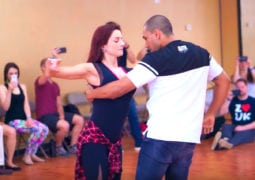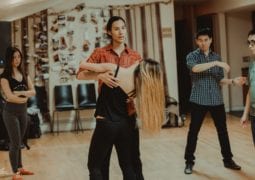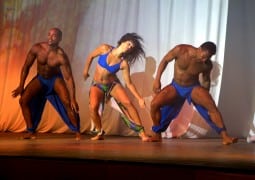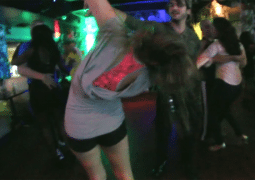Janet Jackson Daddy Yankee Music Video Featuring Brazilian Zouk
We’ve hit a milestone recently, Brazilian Zouk has been exposed in Janet Jackson & Daddy Yankee’s recent music video “Made for Now”. The video is currently at 27 million views in its first two weeks and climbing. This hidden dance called Brazilian Zouk, has regular classes and parties in most major cities all over the world and it’s beginning to get some mainstream exposure.
The backstory
A New York pioneer choreographer has recently been taking Brazilian Zouk courses. When the Janet Jackson project came around, Brazilian Zouk came to mind as the perfect segment in the video. A crew was assembled from New York that featured Adoralynn Pagan, Jessica Lamdon, Buddy Valdez and myself.
The hope is that through this video other opportunities will arise featuring Brazilian Zouk. A mainstream interest could increase class sizes and work for teachers all over the world. The dance is in a great position for growth and classes and events are now easily accessible in every major metropolitan city.
Charles Espinoza
https://www.facebook.com/charleslespinozadancer/

- Previous Treatment of Media Artists in Dance
- Next Saturday Night at the Dutch International Zouk Congress
You may also like...
Sorry - Comments are closed







